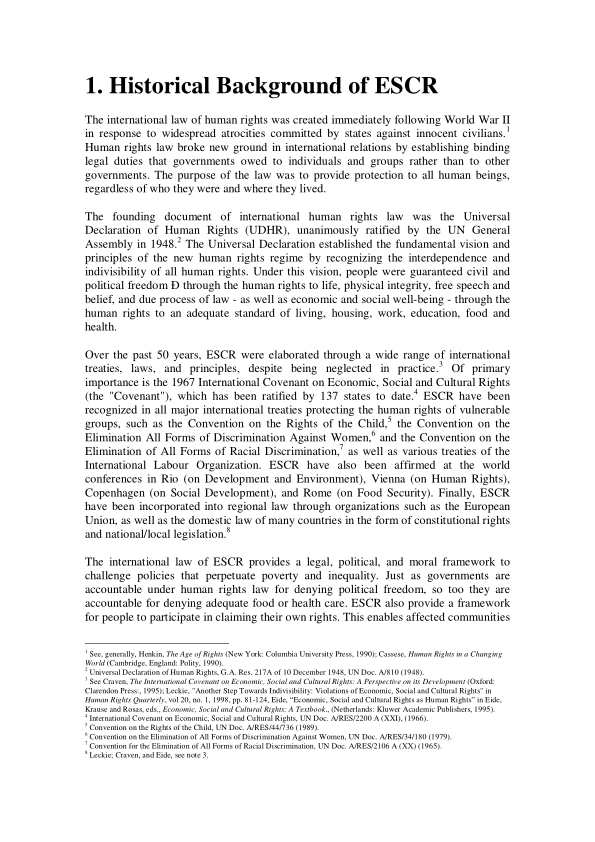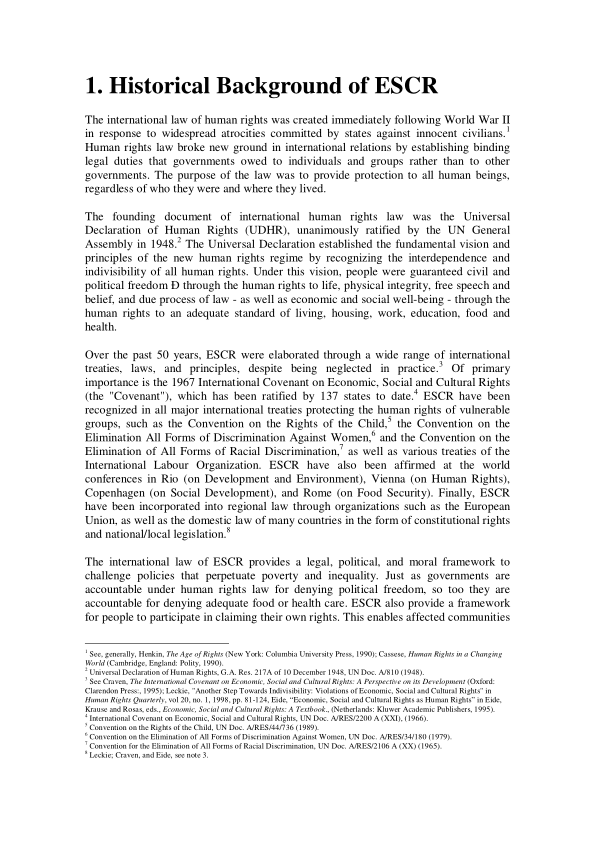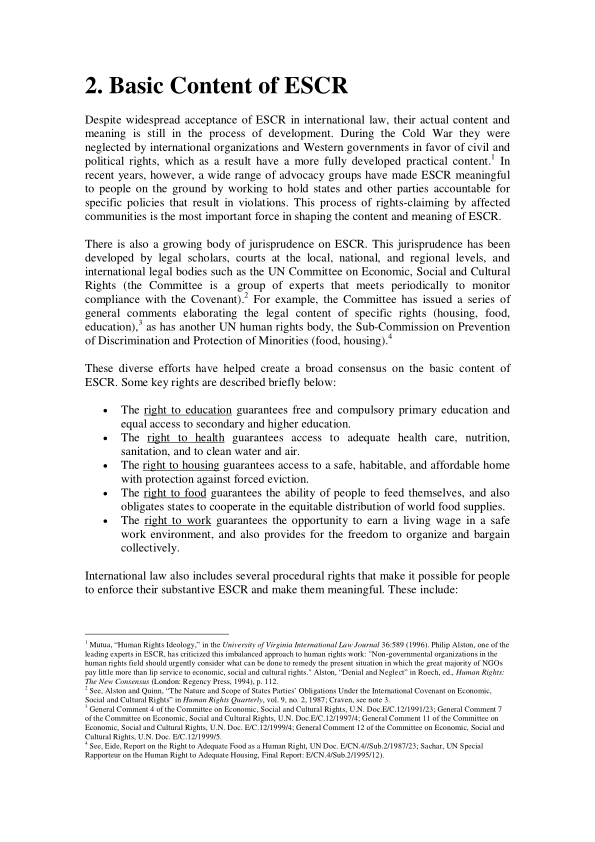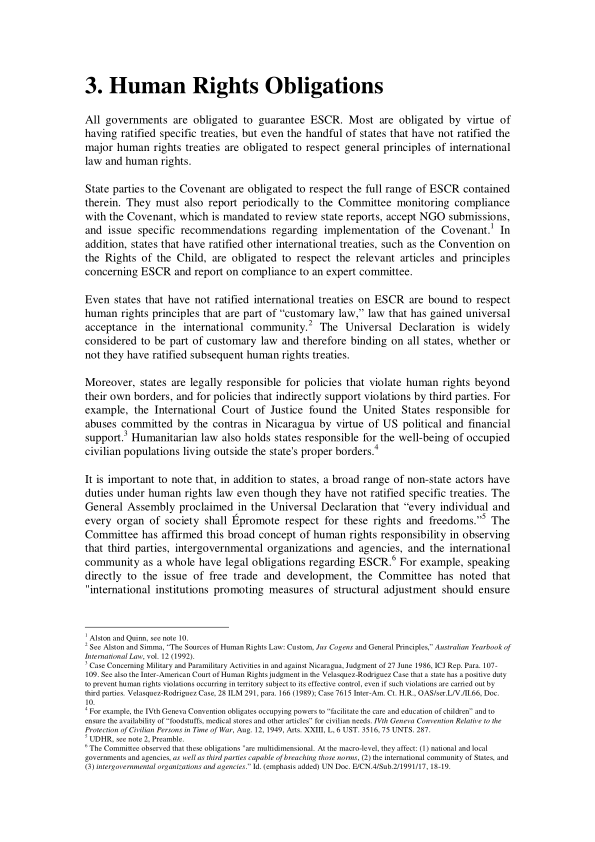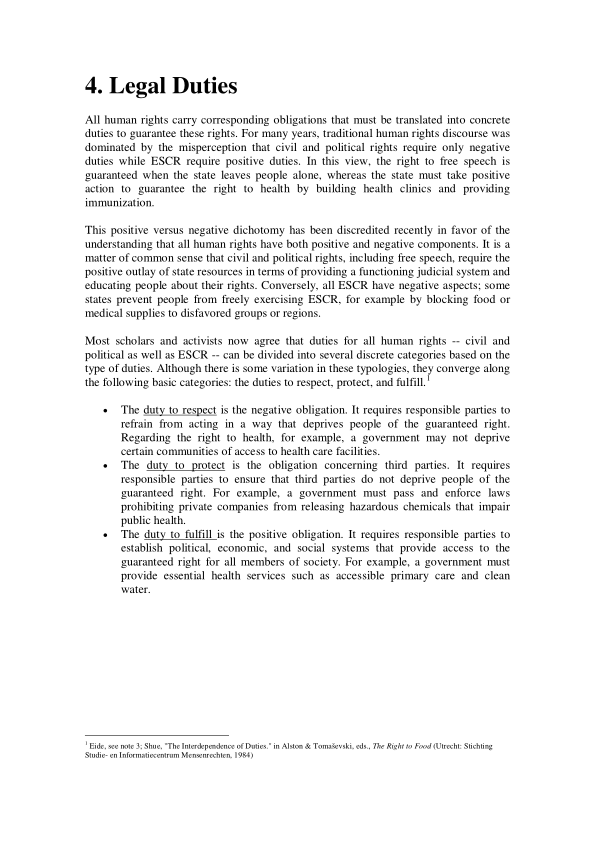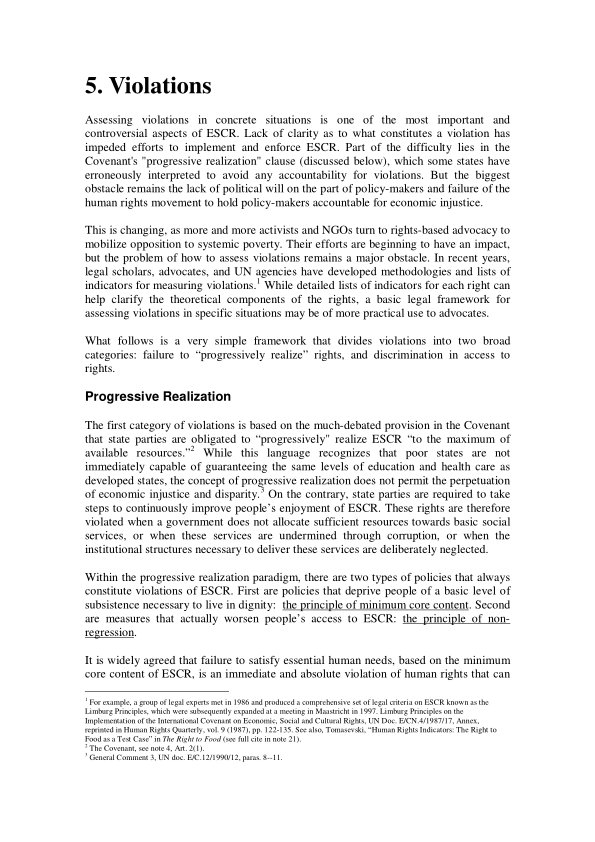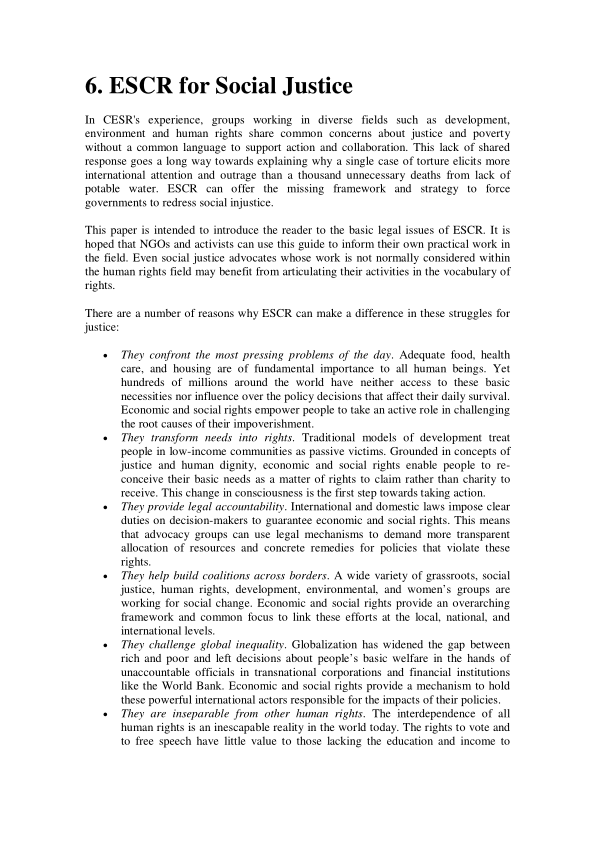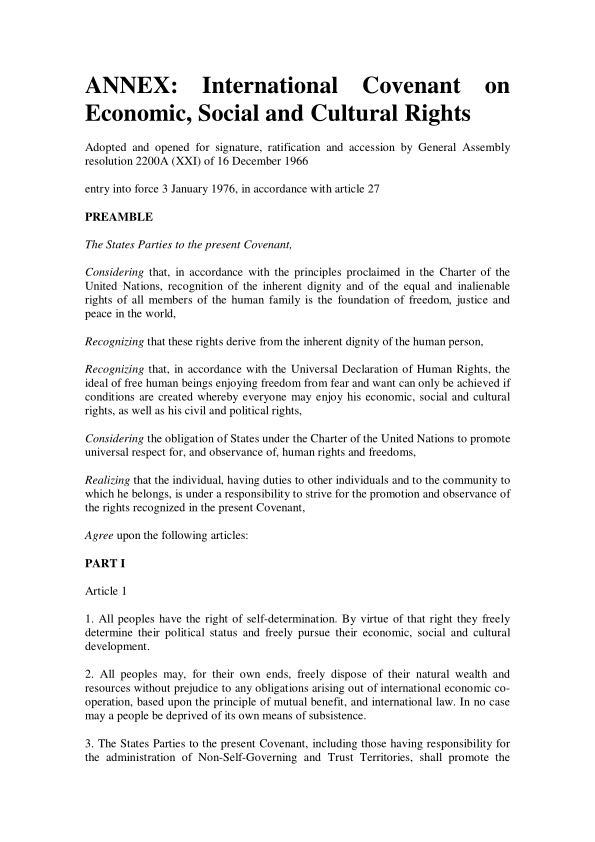 In recent years there has been a surge of interest in economic, social and cultural rights (ESCR) and more generally in the intersection of economic development and human rights. Neglected during the Cold War, ESCR have assumed heightened significance in light of the persistence of systemic poverty in the global economy. The failure of traditional development policies, seen in the increasing divide between rich and poor around the world, has spurred new efforts to address economic deprivation through human rights strategies.
In recent years there has been a surge of interest in economic, social and cultural rights (ESCR) and more generally in the intersection of economic development and human rights. Neglected during the Cold War, ESCR have assumed heightened significance in light of the persistence of systemic poverty in the global economy. The failure of traditional development policies, seen in the increasing divide between rich and poor around the world, has spurred new efforts to address economic deprivation through human rights strategies.
ESCR are now being taken up by human rights, environmental, and development groups as well as by grassroots community-based organizations. In response to public pressure during the 1990s, the international community of states convened at world summits on such issues as human rights, food security, and development. Major UN agencies, including UNDP and Unicef, have adopted new policies and programs on human rights and human development. Even powerful international financial institutions such as the World Bank, the WTO, and global corporations recently have been compelled to address the human rights impacts of their economic policies.
While providing a welcome break from the past history of neglect, this newfound interest in ESCR remains largely at the level of rhetoric. The international community still shows very little inclination to implement and enforce ESCR, as this would require addressing the enormous and growing inequalities at all levels of human society, from local to global. The real impetus for action and change is coming from "below," from NGOs and grassroots groups genuinely committed to using ESCR in their social justice work. However, these groups often have difficulty pioneering this new human rights discipline because of the lack of resource materials explaining what ESCR are and how they can be used in concrete situations.
This paper seeks to address one part of the information gap by summarizing and explaining the basic legal framework of ESCR and its utility for social justice advocates. It is based on the most recent scholarship in the field, as well as the practical experience of the Center for Economic and Social Rights (CESR) in working with local partners on projects in Latin America, the Middle East, and the United States. The paper's limited focus on the legal framework excludes discussion of other important ESCR issues -for example, how to monitor and assess rights compliance through social science research and how to empower affected communities through education and training.
The paper is divided into the following sections (first file is complete document):
